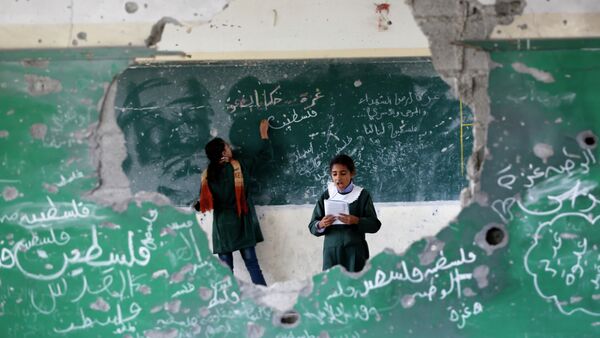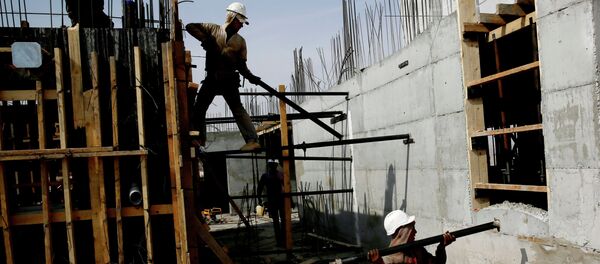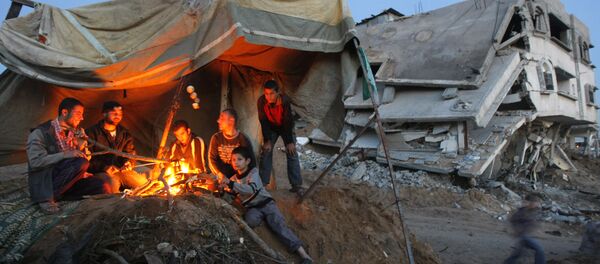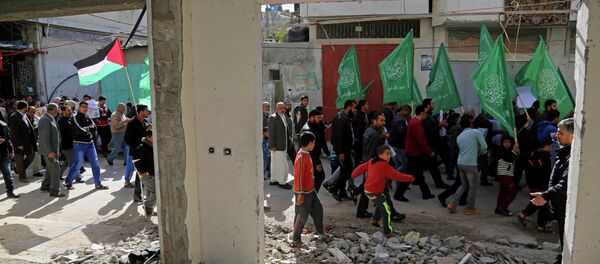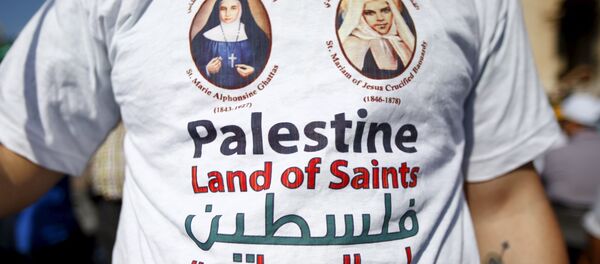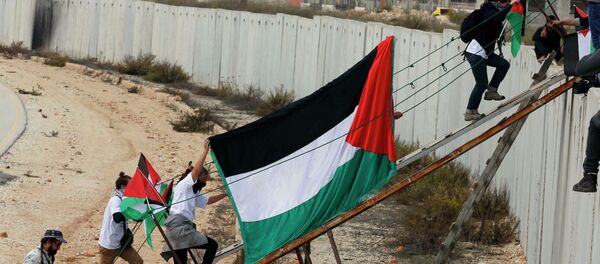MOSCOW (Sputnik), Svetlana Alexandrova — Local media reported earlier this week that Israel had been conducting secret talks with Hamas, an Islamic organization and political party, despite officially considering it a terrorist organization.
"According to our knowledge, Israel and Hamas have had direct contact with each other, as some Israeli officials think that the plan of an independent Gaza as the state of Palestine could be agreeable with Hamas," Mustafa said.
"We officially feel that this kind of projects and plans will not solve the Palestinian problem and is very dangerous for the Palestinian statehood aspirations," he said.
The diplomat called on Hamas to refrain from engaging in secret talks with Israel.
US Should Focus on Effective Team Playing in Middle Eastern Quartet
Palestinians wish to see the United States contribute to conflict resolution with Israel within the framework of the Middle East Quartet rather than as a single player, the Palestinian ambassador to Russia told Sputnik.
The Middle East Quartet consists of the United Nations, Russia, the United States and the European Union. Established in 2002, it has mediated Israeli-Palestinian peace negotiations, though no lasting peace agreement has yet been achieved.
"There are other big players on the geopolitical arena and Russia is one of them alongside with the UN," the Palestinian ambassador noted.
The most recent round of peace talks between Israelis and Palestinians began with a US impetus in mid-2013 but collapsed nine months later.
Vatican Recognition of Palestine Encourages Catholic Countries to Follow
"The importance of the Vatican recognition of Palestine goes beyond the political or legal aspects as it encourages the Catholic countries across the world to recognize the independent state of Palestine," Fayed Mustafa said.
On May 13, the Vatican and the Palestinian Authority signed a treaty that formally recognizes the state of Palestine and gives legal weight to the Vatican's unofficial years-long recognition.
"This recognition has a special weight given the Holy See's moral stature and significance of the capital of the Catholic world," Fayed Mustafa said.
The declaration follows Swedish recognition of the nascent state in October 2014. The UN General Assembly, the French and Irish parliaments along with Spain have passed motions urging their governments to recognize the state of Palestine.
"The Vatican's recognition of Palestine comports with a positive shift in Europe toward accommodating Palestinian statehood aspirations that in the past were supported mainly among the Latin American and African countries," he said.
The Vatican's decision has brought condemnation from Israel, with the country's foreign ministry stating it was "disappointed" with the move.
Palestine Welcomes Iran's Peaceful Assistance to Palestine's Statehood Struggle
Earlier this week, Iranian Supreme Leader Ayatollah Ali Khamenei, in a reference to Iran's main geopolitical competitor Saudi Arabia, said that Tehran will do what it can to protect oppressed people in Yemen, Palestine, Bahrain and elsewhere in the region.
"If we are talking about the Palestinian struggle within the Middle East conflict with Israel, any country's efforts in helping Palestinians in their statehood aspirations are greatly appreciated if they mean to help us within our peaceful methods," Ambassador Fayed Mustafa told Sputnik.
The envoy emphasized the regional geopolitical significance of Iran and welcomed Tehran's support of Palestine within the framework of UN Security Council resolutions.
Palestinians seek diplomatic recognition for their independent state on territories occupied by Israel during the 1967 Six-Day War, including the West Bank and Gaza.
The State of Palestine is currently recognized by 135 of the 193 United Nations member states, including Russia.
The Israeli-Palestinian conflict escalated in July 2014 after Israel launched Operation Protective Edge against Hamas forces in Gaza. More than 2,000 Palestinians and some 70 Israelis were killed during 50 days of fighting.
